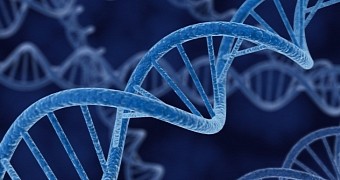Given the chance, many of us would choose never to grow old. Thanks to researchers with the University of California, Los Angeles in the US, humanity might be one step closer to getting its hands on the long sought-after fountain of youth.
Writing in the journal Cell Reports, these brainiacs detail the discovery of a gene that they say has the wondrous ability to slow the aging process. Specifically, this gene is argued to be able to prolong life while promoting good health.
The fruit flies experiments
In their paper in the journal Cell Reports, the University of California, Los Angeles scientists behind this research project detail that the gene's ability to put the aging process on a tight leash has until now only been documented in fruit flies.
Thus, the specialists say that, after several such insects had the AMPK gene activated in key organ systems, they ended up living for about 30% longer than they otherwise would have. Besides, they stayed healthy until they drew their last breath.
“We have shown that when we activate the gene in the intestine or the nervous system, we see the aging process is slowed beyond the organ system in which the gene is activated,” study senior author David Walker said in a statement.
How the gene works
Evidence at hand indicates that this so-called AMPK gene slows the aging process by boosting the body's natural ability to get rid of old and faulty cellular components, a process known to scientists as autophagy, the University of California, Los Angeles, researchers say.
By pushing autophagy into overdrive, the gene helps ensure that the body gets rid of cellular trash before the damaged and old components that comprise it get the chance to damage cells. In doing so, the gene enables cells to stay healthy for longer periods of time and slows aging.
Implications for humans
The scientists suspect that the same gene can help slow aging in the case of humans. Otherwise put, they expect that, were they to find a way to activate AMPK in people and have it promote autophagy, folks would find themselves living longer and staying healthy well into old age.
What's more, this gene could help treat conditions such as Parkinson’s and Alzheimer's, which previous investigations have shown go hand in hand with the buildup of cellular garbage in the brain. The onset of several other diseases associated with old age could be delayed with the help of this gene.
As David Walker put it, “Instead of studying the diseases of aging — Parkinson’s disease, Alzheimer's disease, cancer, stroke, cardiovascular disease, diabetes – one by one, we believe it may be possible to intervene in the aging process and delay the onset of many of these diseases.” Furthermore, “We are not there yet, and it could, of course, take many years, but that is our goal and we think it is realistic.”

 14 DAY TRIAL //
14 DAY TRIAL //